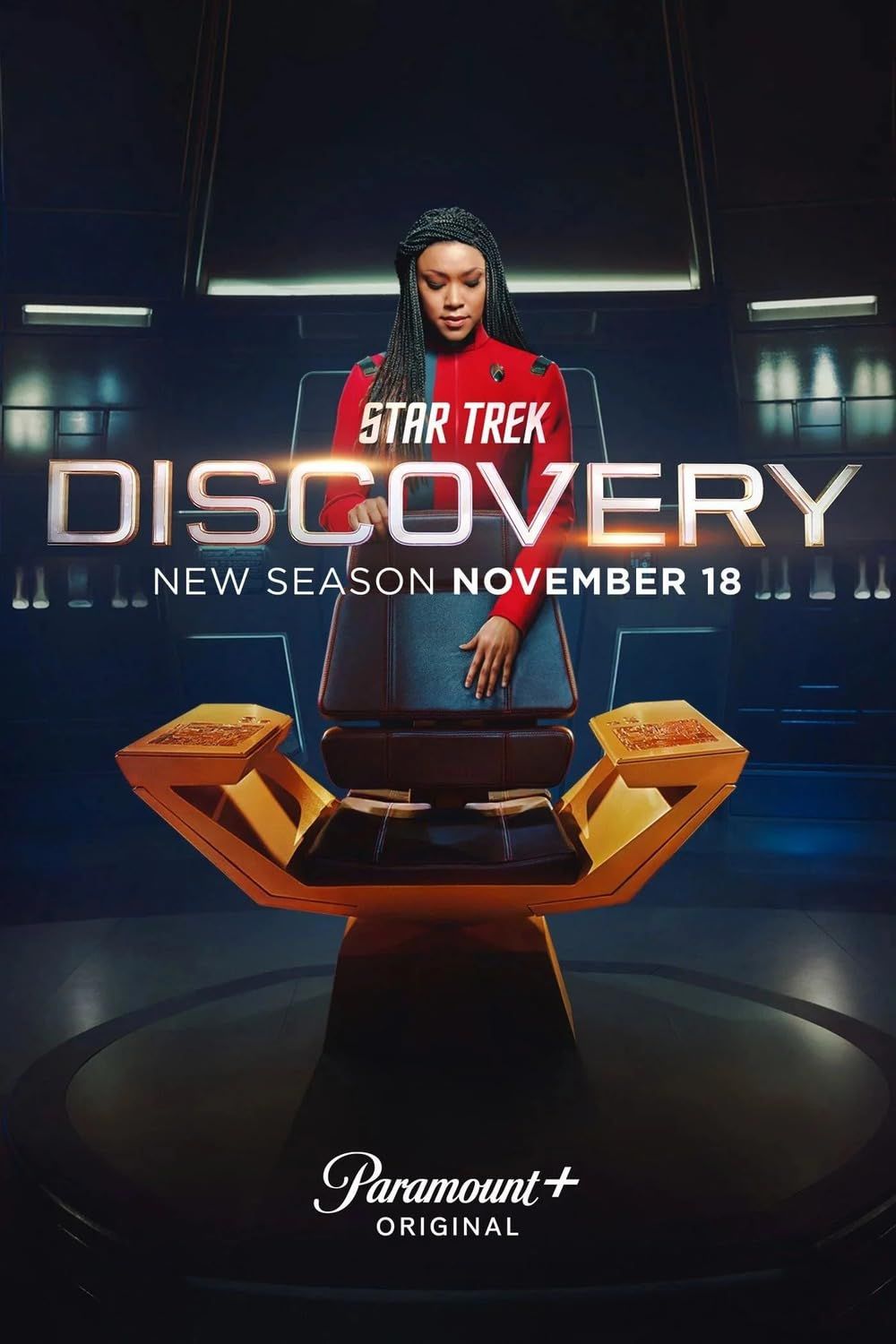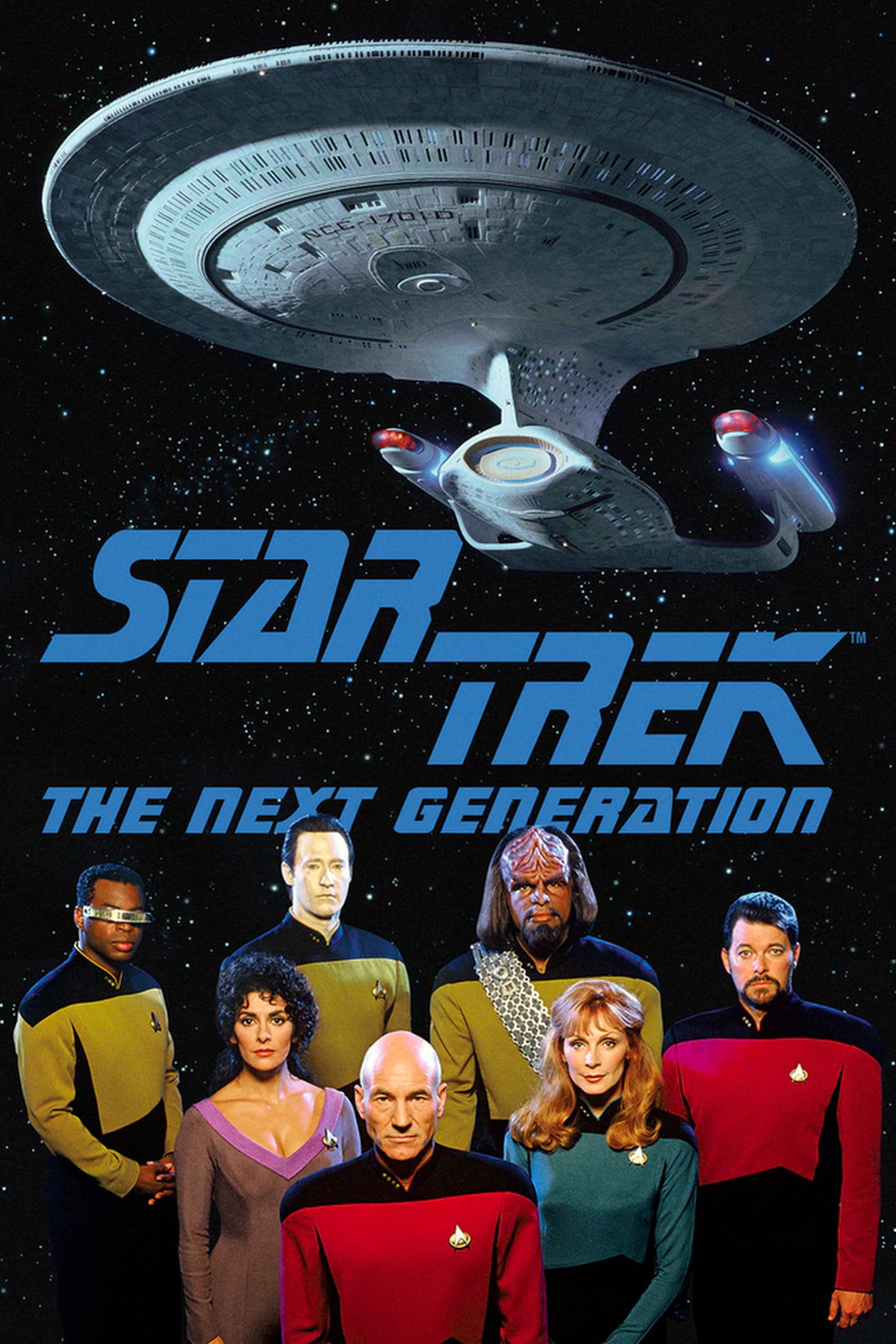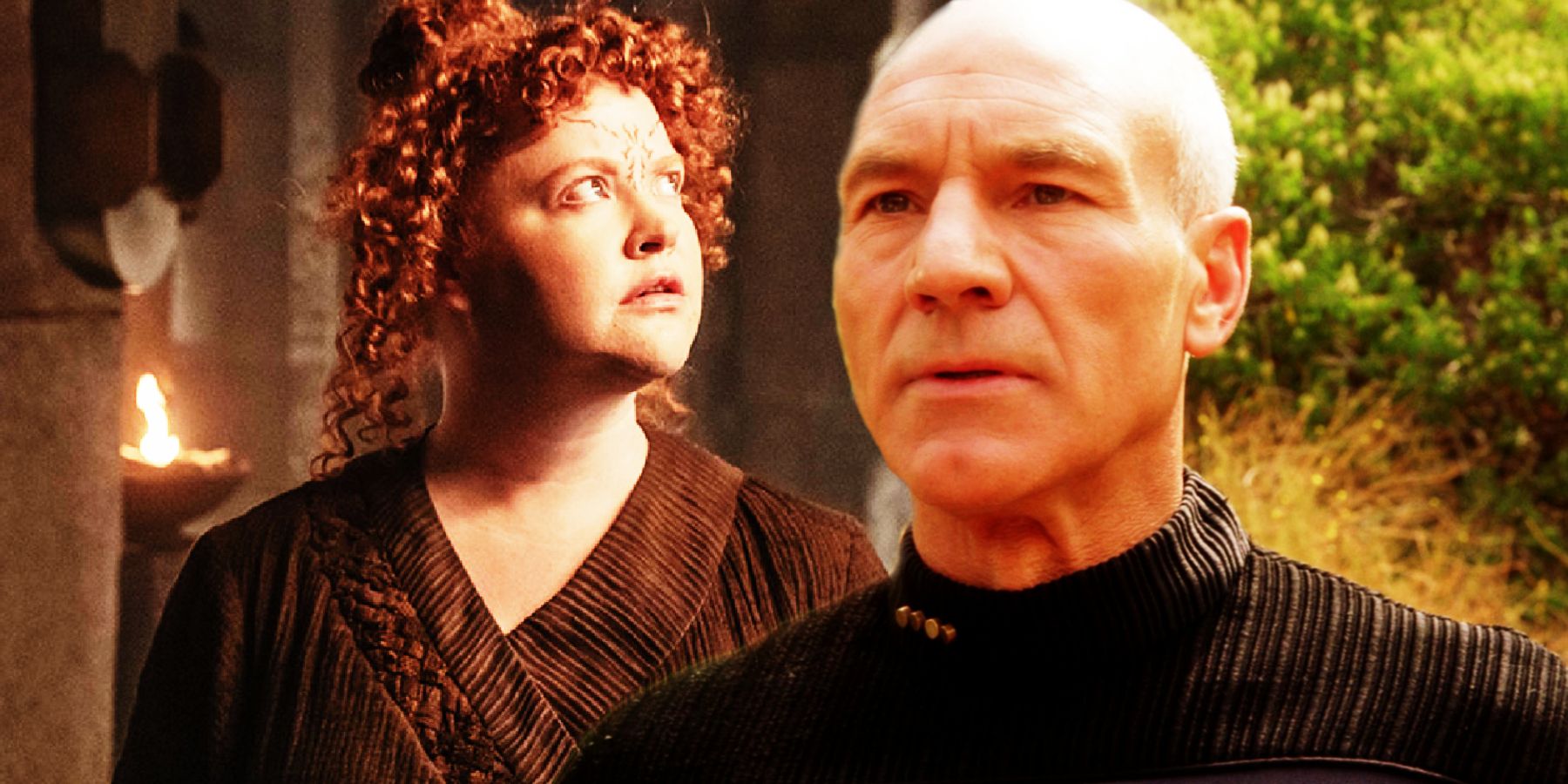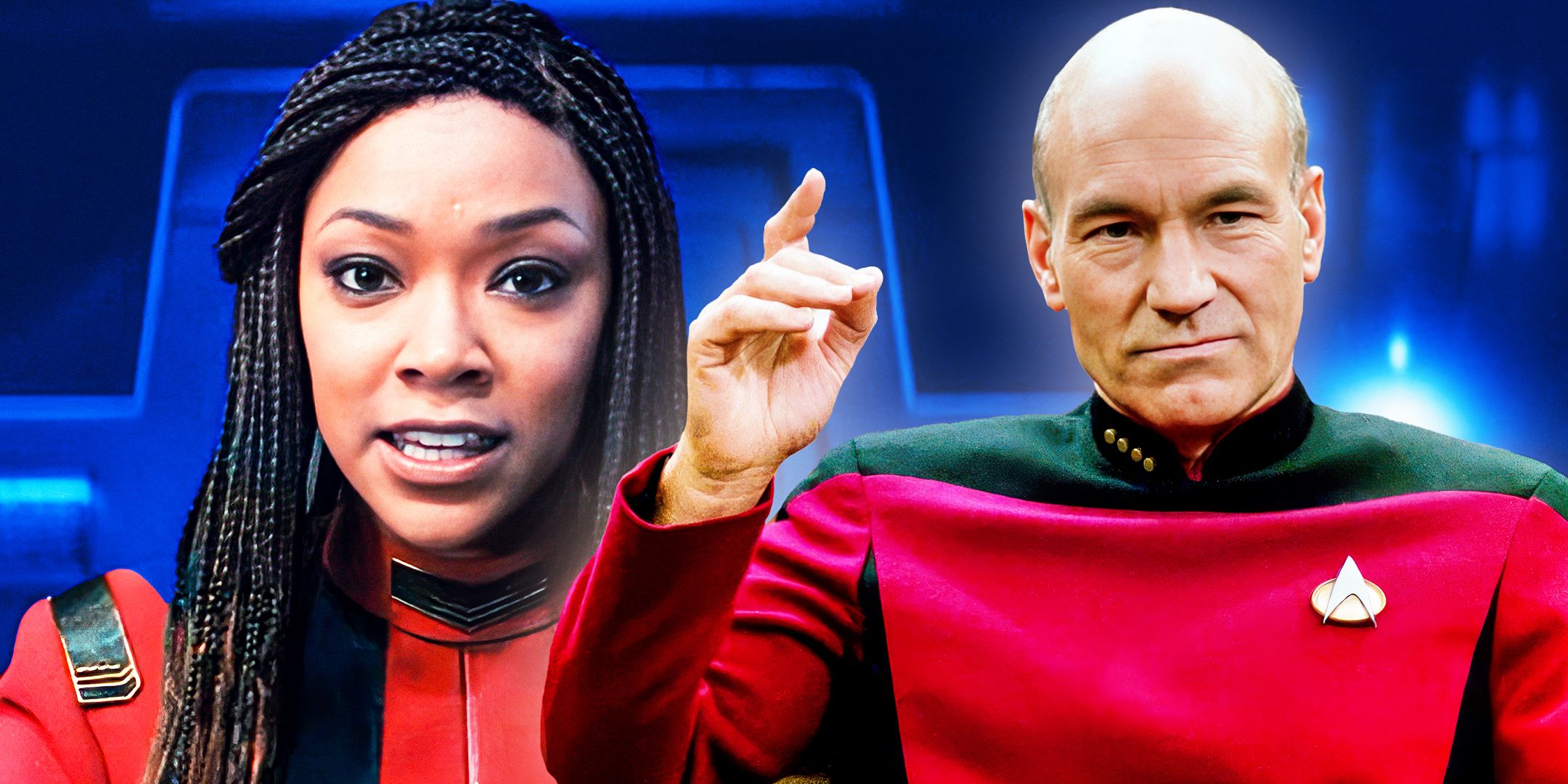Warning: SPOILERS for Star Trek: Discovery Season 5, Episode 6 - "Whistlespeak"
Summary
- Captain Burnham respects Halem'nite beliefs, bridging technology and faith better than Picard in TNG.
- Dr. Culber explores spirituality in "Whistlespeak", showcasing science and faith coexisting.
- Star Trek: Discovery promotes tolerance by validating different beliefs.
In Star Trek: Discovery season 5, episode 6, "Whistlespeak", written by Kenneth Lin and Brandon Schultz, and directed by Chris Byrne, Captain Michael Burnham (Sonequa Martin-Green) violates Starfleet's Prime Directive in a way that's better than Captain Jean-Luc Picard (Patrick Stewart) did in Star Trek: The Next Generation. The USS Discovery's next stop in Star Trek: Discovery's treasure hunt is Halem'no, where a pre-warp society reveres Denobulan scientist Hitoroshi Kreel's camouflaged weather-regulating towers religiously. The 800-year-old towers are failing due to disrepair, and the Halem'nites are responding by sacrificing people, including Lt. Sylvia Tilly (Mary Wiseman), so Burnham halts the sacrifice and explains the rainmaking technology isn't divine.
In Star Trek: The Next Generation season 3, episode 4, "Who Watches the Watchers", the USS Enterprise-D crew resupplies the researchers observing the pre-warp society on Mintaka III from behind a holographic "duck blind". An accident at the research station causes the failure of the hologram and injures Liko (Ray Wise), a Mintakan civilian who spies the scientists. After Dr. Beverly Crusher (Gates McFadden) resuscitates Liko on the Enterprise, Liko returns to his village, proclaiming to be healed by an ancient Mintakan god, and the god's name is "the Picard". Picard's answer is to deny not only his own divinity, but the existence of any gods at all.

Star Trek: Discovery Season 5 Episode 6 Ending Explained
Captain Burnham must break the Prime Directive to save Tilly and find the Progenitors' next clue in Star Trek: Discovery season 5, episode 6.
Captain Burnham Validates The Halem'nites In Star Trek: Discovery Season 5
Captain Picard's Philosophy in TNG Matches Roddenberry's Vision, But Is That Okay?
After making a conscious decision to violate Starfleet's Prime Directive of non-interference with pre-warp civilizations, Captain Michael Burnham doesn't deny the existence of the Halem'nite gods. Burnham reveals herself to Ohvaz (Alfredo Narciso), a Halem'nite elder, and explains Burnham's transporter and Halem'no's rain are both the result of advanced technology. That gets Ohvaz questioning the existence of gods entirely, and Michael responds with genuine uncertainty, instead suggesting that the Halem'nite faith can coexist alongside knowing that technology is responsible for the rain. It's not up to Burnham to decide whether gods are real, just to tell Ohvaz how to keep the weather stations functional and the Halem'nite people alive.
Burnham's agnostic compassion in Star Trek: Discovery stands in contrast to Captain Jean-Luc Picard's atheistic response to the Mintakans in Star Trek: The Next Generation. Captain Picard agrees to dispel Liko's notion that Picard is one of Mintaka III's ancient gods, not just because Picard isn't a god, but because Jean-Luc himself believes that Liko's faith in any religion is a backward development. The TNG portrayal of religion as a superstitious practice that must be discarded for cultural evolution aligns with Star Trek creator Gene Roddenberry's vision of the future, but it's an insensitive line of thinking that Star Trek: Discovery rectifies.
In Star Trek: Deep Space Nine, season 1, episode 19, "In the Hands of the Prophets", Commander Benjamin Sisko (Avery Brooks) shows similar respect for others' culture when Ben tells his son Jake (Cirroc Lofton) that the Bajorans aren't wrong to believe the wormhole aliens are Prophets because they very well could be.
Star Trek: Discovery Season 5, Episode 6 Raises Questions of Faith
Dr. Culber's Storyline In "Whistlespeak" Is Synergistic With the A-plot
Star Trek: Discovery season 5, episode 6, "Whistlespeak", allows science and faith to coexist on the same level. As Captain Burnham and Lieutenant Tilly address the beliefs of the Halem'nites, Dr. Hugh Culber (Wilson Cruz) searches for a physical, scientific reason for feeling connected to something greater than himself. Culber theorizes the feeling is an after-effect of lending his body to Trill host Jinaal in Star Trek: Discovery season 5, episode 3, "Jinaal", but without an anomalous reading, the only explanation is a spiritual one. Framing Culber's newfound spirituality as positive instead of regressive is a beautiful conclusion that reaffirms what Burnham tells Ohvaz on Halem'no.
Faith can bring communities together by giving hope and comfort to people in difficult times.
By treating religion and technology as separate, but equally valid concepts, Star Trek: Discovery is more in line with Star Trek's overall message of respecting cultures and being tolerant of those unlike ourselves than Roddenberry's atheistic vision. Religion can be used as a tool to harm others, as Picard fears in Star Trek: The Next Generation, but faith can also bring communities together by giving hope and comfort to people in difficult times, as the Halem'no faith does in Star Trek: Discovery. Burnham recognizes the benefits inherent to the Halem'nites' beliefs, and respects their faith, making Burnham's approach to a Prime Directive violation better than Captain Jean-Luc Picard's.
Star Trek: Discovery and Star Trek: The Next Generation are streaming on Paramount+.
-

Star Trek: Discovery
- Cast
- Sonequa Martin-Green , Doug Jones , Anthony Rapp , Wilson Cruz , Mary Wiseman , Blu del Barrio , Callum Keith Rennie , Eve Harlow , Oded Fehr
- Writers
- Alex Kurtzman
- Where To Watch
- Paramount+
-

Star Trek: The Next Generation
- Cast
- Patrick Stewart , Marina Sirtis , Brent Spiner , Jonathan Frakes , LeVar Burton , Wil Wheaton , Gates McFadden , Michael Dorn
- Writers
- Rick Berman , Michael Piller , Brannon Braga , Jeri Taylor , Ronald D. Moore
- Where To Watch
- Paramount+




